
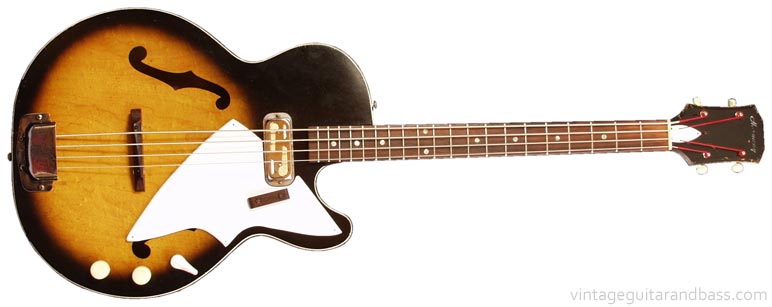
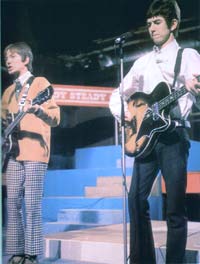
The Harmony H22 bass is one of those instruments that made history. Despite being a relatively inexpensive model, it really was a great guitar. Sound-wise it was comparable to the Gibson EB2, or Epiphone rivoli, but available at a fraction of the cost. It was the first electric bass produced by Harmony, and probably their best known.
1960s budget guitars were, in some ways, very much better than the mass-produced budget offerings of today; although some hardware was of a lower standard, the body, neck and fingerboard woods were generally highly superior. The H22 featured a laminated maple top, back, bolt-on maple neck, rosewood fingerboard, and is only really let down by its cheap looking plastic knobs, and too-small guitar style tuning pegs. The electronics feature a passive DeArmond pickup, volume and tone controls, and a 'bass enhancer' switch that really makes this instrument rumble. The Harmony company was based in Chicago Illinois where the H22 was manufactured. The company was disbanded in 1975, having produced thousands of instruments for itself and other companies.
Played by a number of influential British bass players (amongst others): Ronnie Lane (Small Faces, Faces) - despite having an Epiphone Rivoli, and the more expensive Harmony H27 he'd often revert to the H22; and also Muff Winwood of the Spencer Davis Group.
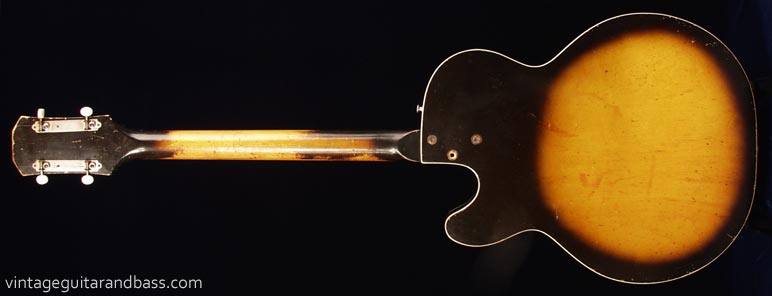
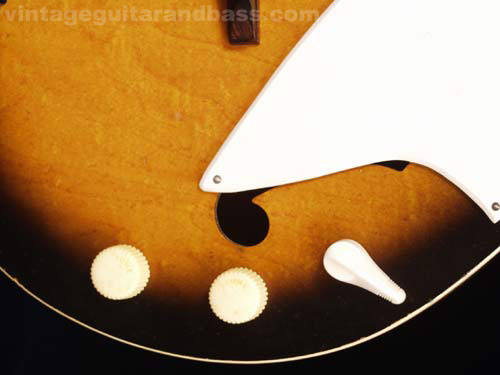
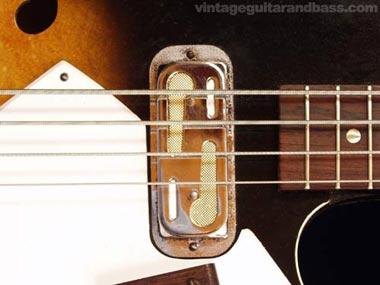
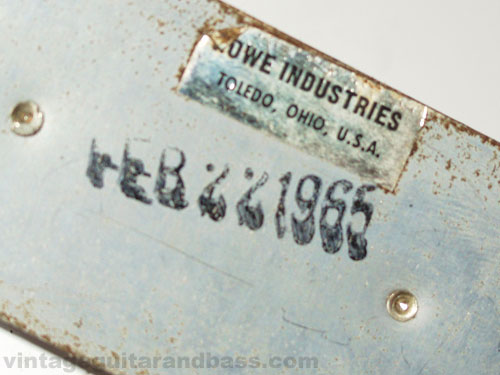
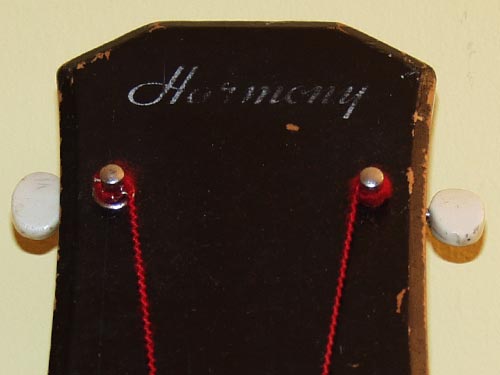
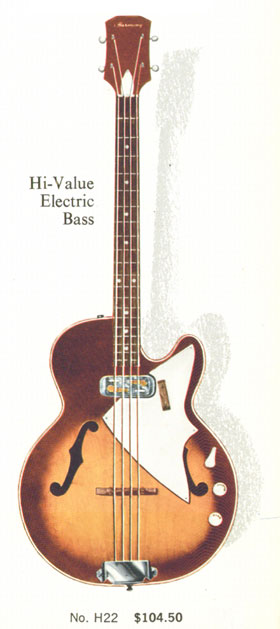
Golden Tone Pickup, De Armond Built — Bass and Baritone Registers — Outstanding Response
Designed for the guitar or string bass player to "double" on a second instrument. Comfortable Auditorium size—Ultra-Thin hollow Tone Chamber body—laminated maple top and back—celluloid bound edges. Satin-smooth walnut shaded eggshell finish.
Slim Torque-Lok reinforced neck. 15 frets clear of the body. The rosewood fingerboard is comfortably narrow, 1¾ in. wide at the nut. Full scale, 30 inches from nut to adjustable bridge. Has fine quality flat wound strings. The pickup was especially designed in cooperation with De Armond for dual tone and fine response. Finger tip switch provides a choice of full bass or lighter baritone registers. A rosewood finger rest facilitates plucking of the strings.
| No. H22 | Electric Bass. Size overall 15 3/4 x 44 1/4 in. Rim 2 in. deep | $104.50 |
| No. C22 | Carrying Case, extra | $18.00 |
Harmony H22 Bass (round wound strings, treble and vol pots positioned at 9/10, bass boost ON, recorded directly into my sound card, with no pre-amp). I vastly prefer this bass with the bass boost on. Man that's heavy! Talk about Tone.
Listen to Harmony H27 soundclips here
$2995
$750
£33